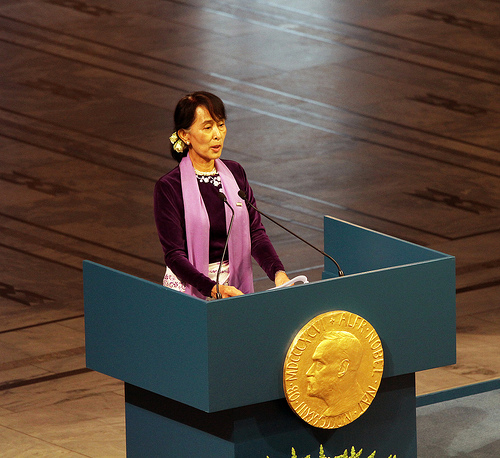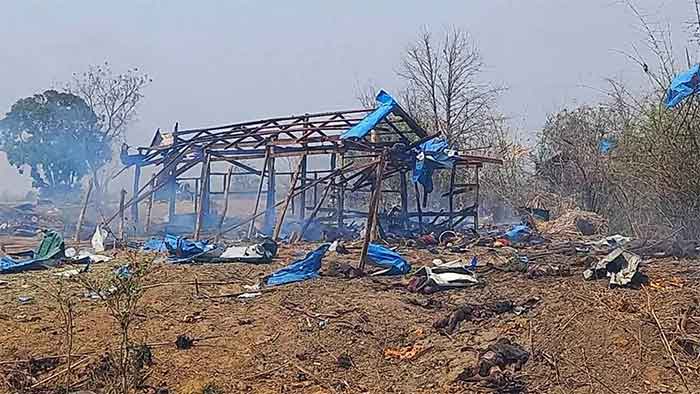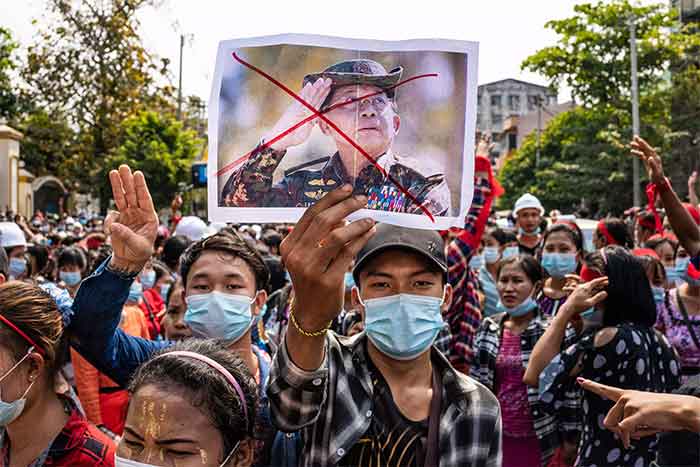
Recently several charges of corruption have been leveled by the repressive junta against Suu Kyi, the popular leader of Myanmar who recently led her party to a big electoral victory but is being prevented from leading a democratic government by the military. These have been firmly denied by her lawyer. Despite this, we may see more of such charges in the days to come as false corruption charges are increasingly being used by repressive regimes to create problems for their opponents in various ways.
There can be no more disturbing evidence of this than in Brazil where the entire course of the recent history of this very important country was sought to be changed by the so-called Operation Car Wash or the anti-corruption investigation Lava Jato. Although this campaign with strong CIA-links was used so effectively as to send former President Lula da Silva to prison and to prevent him from contesting elections, resulting in the coming to power of the right-wing Bolsonaro who within a short time has aggravated so many problems of Brazil while creating new ones as well. As it has turned out Lula has now been acquitted by the Supreme Court and it is the judge and the prosecutors who implicated him in false charges who are now facing increasing allegations for setting a trap for the former popular President as a part of a wider conspiracy to defame and arrest him.
At the same time that such wrong use of false corruption charges should be exposed, it is a fact that large-scale corruption is a reality in most countries and this is very harmful for people and economy. There is also a lot of resentment and anger of people against corruption which is understandable.
There is a clear need to channelize these serious concerns of people into genuine, sincere movements of people against corruption which themselves function with transparency and take participative, balanced, well-reasoned positions. Unfortunately, powerful vested interests often hijack the corruption issue along lines that suit their narrow self-interests.
In India the RTI movement started with very encouraging efforts of the MKSS in Rajasthan to take right to information among ordinary workers and peasants in remote villages. They used this to ensure better implementation of drought relief work and reduce corruption in rural development schemes meant for the poor. Then the movement grew at the state and national level, involving leading intellectuals as well, culminating in the national level legislation in India being passed. Despite some weaknesses, on the whole this was a good law which was discussed as a model law in several countries. Taking this further, a balanced approach to reducing corruption involving better implementation of RTI, passing of whistleblowers law as well as other governance reforms was being discussed and taken forward by several activists, particularly those involved earlier in the successful RTI campaign.
Then suddenly a new campaign emerged with single-minded focus on Lokpal and so much emphasis was placed on this single demand, that too with its highly exaggerated presentation, that it appeared for some days as if the fate of the country depended just on Lokpal. Those who are now in power were very much a part of this. The question to them is—where is your strong and effective Lokpal now to check all corruption? Sure institution of Lokpal exists, but how effective it has proved in checking corruption?
The demand for a very strong Lokpal was used for whipping up emotions on the issue of corruption and presenting demands in a way that would be difficult for the government to accept. The aim really was to use the issue of corruption in such a way as to defame the government and prepare the background for electoral defeat of Congress. The entire campaign was very shrewdly planned for this larger purpose and had the support of powerful forces. Very serious charges of corruption were leveled against ministers in the then union government but the most publicized charges were later found to be false or exaggerated, but by then the government had fallen. In the case of the most discussed 2G Spectrum corruption case the special court in Delhi while acquitting the accused said in 2017—Some people created a scam by artfully arranging a few selected facts and exaggerating them beyond recognition to astronomical levels!
There are other examples also of corruption campaigns being misused to press for change of government . Despite all this it is very important to oppose corruption on a continuing basis in well-reasoned, participative and transparent ways.
Bharat Dogra was the first Convener of the National Campaign for People’s Right to Information. Views are personal.
GET COUNTERCURRENTS DAILY NEWSLETTER STRAIGHT TO YOUR INBOX















































